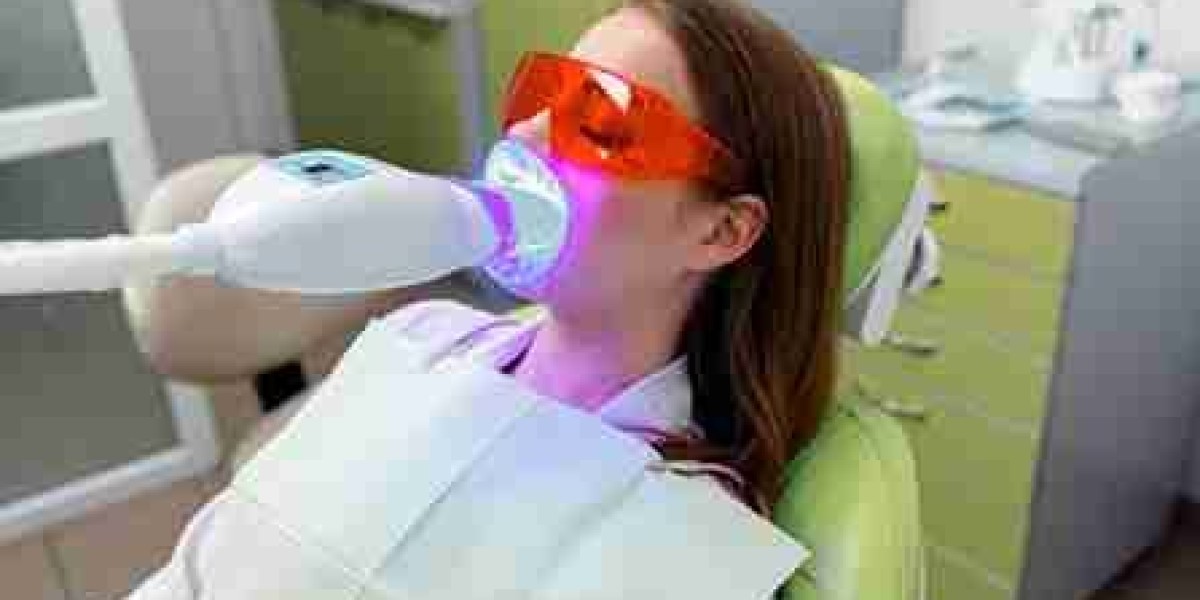A radiant, assured smile can greatly enhance your confidence and the way you’re perceived at first glance. Over the past decade, teeth whitening has become an increasingly popular cosmetic treatment, offering a quick way to enhance the natural brightness of your smile. However, achieving dazzling results is only half the journey. Maintaining that radiance requires more than occasional dental visits or whitening sessions. Many individuals unknowingly engage in daily habits that gradually diminish the effects of their treatment. Understanding which practices can impact whitening longevity is essential for anyone wishing to keep their smile healthy, vibrant, and long-lasting.
Understanding Teeth Whitening
Teeth whitening is a professional or at-home cosmetic procedure designed to lighten the colour of your teeth and remove surface stains. It works by breaking down discolouration in enamel and dentin using bleaching agents, such as hydrogen peroxide or carbamide peroxide. While over the counter products offer convenience, professional treatments provide stronger, safer solutions with more predictable results.
Factors that influence whitening results include:
- Enamel health: Strong, intact enamel retains brightness longer.
- Lifestyle choices: Diet, smoking habits, and oral care routines affect colour retention.
- Genetics and age: Naturally darker enamel or age-related yellowing can influence how quickly stains return.
Professional supervision ensures treatments are personalised to your teeth, minimising risks like sensitivity or uneven results. For example, Teeth whitening Newport services provide tailored approaches based on your dental profile, enhancing both safety and longevity.
Everyday Practices That Can Reduce Whitening Longevity
While professional treatments lay the groundwork for a brighter smile, everyday habits often determine how long those results last. Here are some common practices that may sabotage your efforts:
1. Dietary Choices That Stain
Certain foods and beverages can leave noticeable marks on enamel, gradually dulling whitening results. Key culprits include:
- Coffee and tea
- Red wine and dark sodas
- Berries and sauces with intense pigments
- Curries or tomato-based dishes
Tips to minimise staining:
- Use a straw for drinks where possible
- Rinse with water after meals
- Limit prolonged exposure to staining foods
2. Tobacco and Smoking
Smoking or using tobacco products introduces nicotine and tar into the mouth, which attach to enamel and counteract whitening efforts. Regular use can significantly shorten the lifespan of a bright smile.
Key points:
- Staining occurs quickly and may penetrate deeper layers of the tooth
- Quitting or reducing tobacco use improves results and overall oral health
- Dentists can provide professional cleaning to remove surface stains
3. Poor Oral Hygiene
Neglecting proper oral care allows plaque and tartar to accumulate, which can dull the teeth and reduce whitening effects.
Essential habits include:
- Brushing at least twice daily with fluoride toothpaste
- Flossing to remove debris between teeth
- Using an antibacterial mouthwash for gum protection
4. Acidic and Sugary Foods
Frequent consumption of acidic or sugary foods can erode enamel, making teeth more prone to staining. Citrus fruits, carbonated drinks, and sweets can all contribute to enamel weakening over time.
Practical strategies:
- Rinse with water after consuming acidic foods
- Wait at least 30 minutes before brushing to avoid enamel damage
- Limit frequency of sugary snacks

Habits That May Seem Harmless but Affect Whitening
Some daily practices may seem minor but can still compromise your whitening results:
- DIY whitening overuse: Excessive use of at-home kits can cause uneven results or enamel erosion.
- Certain medications and supplements: Iron, antihistamines, or tetracycline can stain teeth.
- Mouth breathing: A dry mouth reduces saliva, which helps protect enamel from staining and decay.
Being aware of these subtle factors and adjusting routines accordingly can prolong the brightness of your smile significantly.
How Professional Supervision Helps
Consulting a dental professional offers benefits that at-home treatments cannot match. A dentist can evaluate your teeth and gums, recommending customised plans for safer and more durable whitening outcomes.
Advantages include:
Benefit | How It Helps |
Personalised Treatment | Tailored bleaching based on tooth sensitivity and discolouration |
Controlled Application | Reduces risk of enamel damage or irritation |
Longer-Lasting Results | Professional care ensures uniform, durable whitening |
Post-Treatment Guidance | Tips for maintenance and avoiding stains
|
For patients seeking guidance, a Dentist in Newport can provide the expertise needed to achieve safe, effective, and long-lasting results, reducing the risk of sensitivity or uneven whitening.
Tips for Prolonging Whitening Results
Maintaining a bright smile involves both professional care and consistent daily practices. Here are some strategies:
- Avoid staining foods and drinks: Limit coffee, tea, red wine, and dark berries.
- Maintain proper oral hygiene: Brush at least twice daily, floss regularly, and consider fluoride rinses.
- Professional touch-ups: Periodic visits help sustain colour without overusing bleaching agents.
- Hydration: Drinking water after meals reduces staining potential.
- Mindful snacking: Reducing acidic or sugary foods protects enamel.
By integrating these tips into daily routines, patients can enjoy prolonged whitening results and healthier teeth overall.
Hydration and Its Role in Teeth Whitening
Maintaining proper hydration is often overlooked but plays a significant role in prolonging teeth whitening results. Water aids in rinsing away food debris and staining particles while promoting saliva flow, which naturally safeguards enamel. Staying hydrated also lowers the risk of dry mouth, a condition that can speed up staining and tooth decay.
Key Hydration Tips:
- Drink water regularly throughout the day.
- Rinse with water after consuming coffee, tea, or coloured foods.
- Avoid excessive sugary or acidic drinks that dehydrate or erode enamel.
- Consider keeping a water bottle handy to encourage frequent intake.
Consistent hydration complements professional treatments and daily oral care, helping your smile stay naturally bright and healthy.
Additional Considerations for Safe Whitening
Professional supervision addresses elements that DIY approaches often overlook:
- Sensitivity Management: Dentists can suggest desensitising gels or adjust treatment schedules to reduce discomfort.
- Comprehensive Evaluation: Pre-treatment checks identify cavities, enamel wear, or gum issues affecting whitening outcomes.
- Holistic Oral Care: Cosmetic improvement is integrated with overall oral wellness for a safe and effective approach.
Combining professional expertise with conscious daily habits ensures whitening is both safe and sustainable.
Conclusion
While DIY whitening methods may appear convenient, professional guidance remains the safest and most effective route to long-lasting results. Dentist-supervised treatments provide personalised care, reduce the risk of complications, and offer advice for maintaining a bright smile. Incorporating mindful daily habits alongside professional oversight ensures your teeth remain healthy, vibrant, and resilient against staining.
For anyone seeking a confident, enduring smile, combining expert care with conscious oral practices is essential. Trusting Newport guarantees a comprehensive approach, delivering not only aesthetic improvements but also the protection and long-term health of your teeth.








